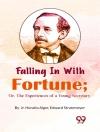In ‘An Old Man’s Prayer, ‘ George M. Baker masterfully blends lyrical prose with poignant introspection, crafting a narrative that explores the depths of human experience through the lens of age and reflection. Set against a backdrop of personal memories and universal truths, the book delves into themes of loss, redemption, and the quiet power of prayer. Baker’s evocative style, rich with metaphor and emotional resonance, invites readers to experience the profound complexities of life’s later years, weaving in elements of spirituality that elevate the text beyond mere reminiscence. George M. Baker, with a lifetime of experiences and expertise in philosophy and literature, draws from his own journey through aging and the search for meaning. His background as a professor and a lifelong writer informs his ability to articulate the struggles and joys that come with reflection. Baker’s deep engagement with existential thought and spirituality enables him to approach the subject matter with both warmth and depth, providing readers with an intimate look at the workings of an aging mind. This book is highly recommended for readers who seek not just a narrative, but an immersive exploration of their own thoughts about life, faith, and the passage of time. ‘An Old Man’s Prayer’ is not merely a story; it is a thoughtful companion for anyone navigating the complexities of life, offering solace and wisdom in equal measure.
Over de auteur
George Melville Baker (1832-1890) was an American playwright, publisher, and author known for his work in the dramatic arts during the late 19th century. He dabbled in a variety of literary forms, including dialogues, farces, and melodramas. A prolific writer, Baker’s impacts on the world of amateur theatricals are noteworthy. ‘An Old Man’s Prayer’ is one of his more touching works, manifesting his capability to address sentimentality and moral themes. Baker’s scripts were characterized by their accessibility and were frequented by amateur groups for their simplified staging and relatable characters. His melodramas were especially popular, often reflecting the social norms and concerns of his time with a blend of pathos and humor. Throughout his career, Baker published more than 200 plays and a variety of books on elocution, indicating his passion for the spoken word and its power in performance. Though not as well known today, Baker’s contributions to the genre of amateur theater have rippled through generations, influencing the structure and style of community and educational theater. Baker’s works remain a testament to his literary talent and reflect an era where stage plays were a predominant form of entertainment for many Americans.












